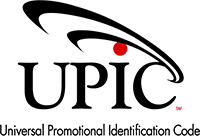Tips on Paper Selection
Choosing the right paper for a printing job can be a daunting task. It doesn’t have to be though. When selecting the best paper type for a particular job, you’re often faced with an overwhelming number of options. Asking your printer for “white” is like asking your waiter for “food” — you’ll have to be more specific than that.
To the educated consumer, the choices don’t seem nearly as intimidating. Before you order though, you’ve got to know the menu. Paper has ten characteristics that affect its cost and appropriateness for a given job.
Surface
The surface of paper affects its look, feel and printability. When paper is pressed at the mill, it passes through a series of rollers in a process called calendaring. Calendaring affects paper in numerous ways. As the extent of this process increases, paper is made smoother, glossier, more capable of retaining ink, thinner, less opaque and less bright. Why does surface matter? Because people do judge books by their cover.
Color
The color of paper is perhaps the most salient of all characteristics. White is by far the most popular color and is generally optimal for conventional usage. Not all white is the same, however — it runs the gamut from ultra-severe hues to softer, more antique shades. Photo white paper is best for accentuating the contrast between light and dark hues.
Off-white sheets produce less glare, and are best used for publications such as novels or technical manuals that demand long and uninterrupted attention from readers. When comparing color, always examine paper under standard viewing conditions and with minimal atmospheric distractions.
Brightness
The brightness of paper measures the percentage of light that it reflects. Most papers reflect approximately 60 to 90% of incoming light. Remember: brightness and color are not the same thing. Unlike the color characteristic (which is highly subjective and imprecise), brightness is a strictly quantitative, or measurable, attribute. Brightness is important because it affects readability — high brightness can cause eye strain, while low brightness can produce a blurring effect.
Opacity
The opacity of paper is the degree to which other printing is visible through the page. High opacity, or density, minimizes the visibility of printing on subsequent pages, thus enhancing readability. Opacity increases with the bulk and weight of paper, and is influenced by numerous other factors, including paper color, ink color, coatings, chemicals and coverage.
Grain
The grain of paper describes the direction, or alignment, of its component fibers. Paper grain is either grain long or grain short. When fibers are patterned parallel to the length of a sheet, the paper is grain long. When fibers run parallel to the width of a sheet, the paper is grain short. Grain direction is a critical factor for print jobs because it directly affects usage — for example, paper strength, flexibility, tack and versatility are all impacted by grain direction.
Weight
The basis weight of paper is calculated as the weight in pounds of one ream, or five hundred sheets. Each main grade of paper has a basic size that is used to determine its basis weight. Remember that paper of equivalent basis weight is not necessarily of equivalent basic size. Smaller sized paper that is thicker can possess a basis weight identical to that of larger, thinner paper. Since paper is sold by the pound, understanding paper weight is imperative to successful cost control programs.
Caliper
The caliper of paper is its thickness. Caliper is measured in thousandths of an inch and referred to as point size. In this system, .001 inch equals one point — and eight-point paper would have a thickness of .008 inch. Do not confuse type point with caliper point. Type point describes the height of a particular font; caliper point describes paper thickness.
Bulk
The bulk of paper denotes its thickness relative to its basis weight. For example, uncalendared paper would have a higher bulk than gloss coated paper. Remember though that paper may be bulkier or thicker than another grade, yet still have the same basis weight.
Size
The size of paper describes its physical dimensions. An 8.5 x 11 sheet is 8.5 inches wide and 11 inches long. Access to specific information concerning the range of paper sizes available for any given printing job is essential to containing costs and ensuring efficient usage.
Quantity
The quantity of paper refers to the number of sheets bought, sold or used. A ream is a standard unit of numerical paper quantity. Paper that is “ream-wrapped” is packaged in a bundle of 500 sheets. Cartons of paper are not defined by exact numerical specifications, but approximate weight. Cartons typically weigh around 150 pounds and are used in practice as a standard unit of sales.



